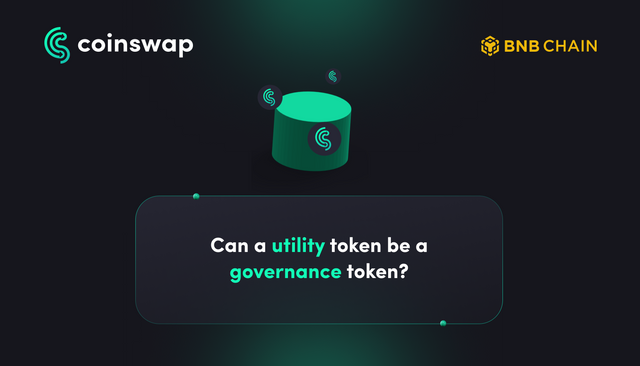
In the world of cryptocurrencies and blockchain technology, utility tokens and governance tokens are two distinct categories of digital assets. Each serves a unique purpose within their respective ecosystems. Utility tokens are primarily used for accessing a specific product or service within a blockchain platform, while governance tokens are designed to grant holders decision-making power over the network's operations. But is it possible for a single token to serve both functions, functioning as both a utility and governance token? Let's delve into this intriguing concept. 🚀🤝
Utility Tokens: Accessing Services and Products 💼🏦
Utility tokens are the lifeblood of many blockchain platforms. They are typically created by projects to facilitate the use of their services or products. These tokens can be used to pay for transaction fees, access specific features, or participate in various activities within the platform. For instance, on a decentralized exchange (DEX), users might require utility tokens to pay for trading fees or participate in liquidity pools. 💱💡
Governance Tokens: Decentralized Decision-Making 🏛️🗽
On the other hand, governance tokens play a crucial role in decentralized autonomous organizations (DAOs) and blockchain networks with decentralized governance structures. Holders of governance tokens can participate in voting processes that determine network upgrades, protocol changes, or other important decisions. This gives them a say in the direction and development of the platform. 🗳️📊
Combining Utility and Governance: The Hybrid Approach 🔄🤹
While utility tokens and governance tokens have traditionally served separate purposes, some blockchain projects have started exploring a hybrid approach. In this model, a single token can provide both utility and governance functions, depending on its usage. This can offer several advantages:
Simplicity: Users only need to hold one token for both access to services and participation in governance. This simplifies the user experience and reduces the need for multiple tokens. 🤗🔑
Incentives: Combining utility and governance can create stronger incentives for token holders. As users utilize the token for its utility, they may also become more engaged in governance activities, leading to a more active and participatory community. 💪🙋
Alignment of Interests: Token holders have a vested interest in the success and stability of the platform. This alignment of interests can lead to better decision-making in governance processes. 📈💼
Challenges and Considerations 🤔📚
Despite the potential benefits, the hybrid approach presents challenges and considerations. One of the main concerns is maintaining a balance between utility and governance functions. If one aspect becomes overly dominant, it can impact the token's stability and its role within the ecosystem.
Additionally, regulatory authorities may view tokens that serve both utility and governance functions differently, potentially subjecting them to different legal frameworks. 📜🕵️
In Conclusion 🌟🤖
The concept of a utility token also functioning as a governance token is an intriguing one, offering potential benefits such as simplicity and alignment of interests. However, it requires careful planning and consideration to ensure a balanced and effective implementation. As blockchain technology continues to evolve, we may see more projects exploring this hybrid approach, shaping the future of token utility and governance. 🌐🚀